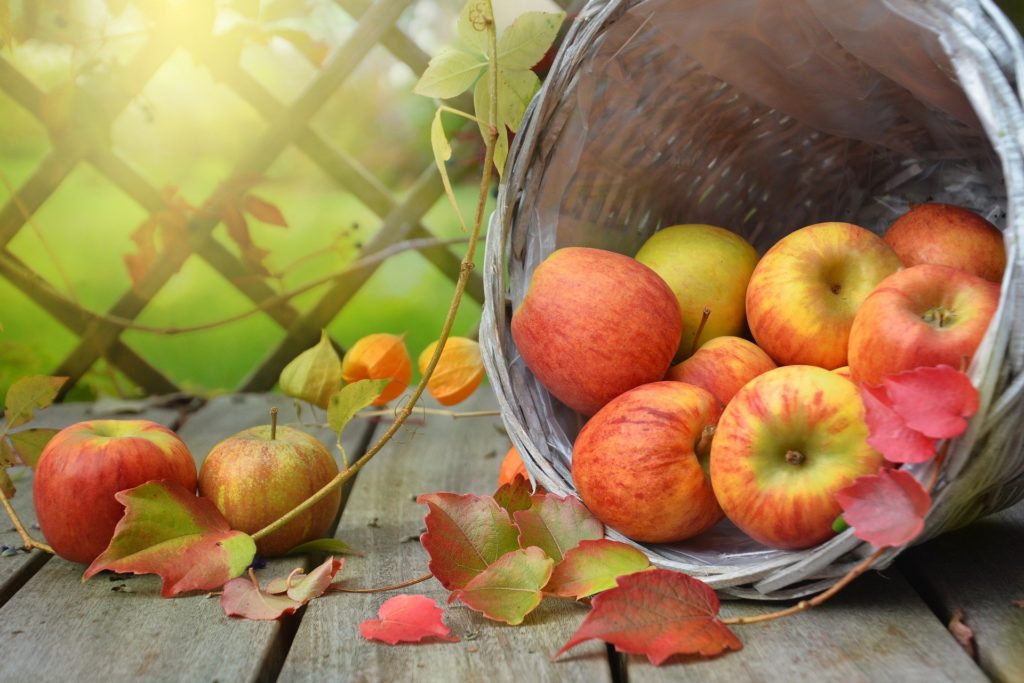
Fall is the perfect season for preparing juicy, crisp apples you can enjoy all year round. Apples can be canned, frozen or dried. While their flavor lends itself to fall and holiday dishes, they can be used year-round for a tasty sweet or savory dish.
Enzymes in light colored fruits such as apples, pears and peaches can cause oxidative browning as soon as the fruit is peeled or cut. To prevent the browning, the cut fruit should immediately be placed in an ascorbic acid (Vitamin C) solution as you prepare the rest of the fruit. When freezing apples in a sugar syrup, the ascorbic acid can be added to the syrup to prevent oxidation and the fruit sliced directly into the syrup. When dry packing frozen apples, the ascorbic acid is dissolved in a small amount of water and sprinkled over the fruit. Browning can also be halted temporarily by placing fruit in citric acid, lemon juice solutions or in a sugar syrup. However, these measures are not as effective as treatment with ascorbic acid in its pure form.
Apples, as well as other fruits, retain better texture and flavor if packed in sugar or a sugar syrup. However, sugar is not necessary to safely preserve fruit. Canned apples can be packed in water, very light syrup, light syrup or a medium syrup. Apples can be frozen in several ways. Sweetened apples can be frozen in a sugar syrup or they can be dry packed in sugar. Apples can also be frozen without any added sugar. Dry packed or unsweetened is generally the best method if using the apples for cooking and making pies as they contain less liquid than syrup packed apples.
In addition to canned slices, apples can be used to make apple butter, applesauce, apple salsa and apple juice. They can be used in soft spreads like jellies, preserves and marmalades as well as in pickled products like chutneys and relishes. There is a great variety of apple products to preserve. Dried apple slices make great fried pies and work well as a holiday gift too.
Apple Math
- 1 bushel = 48 pounds = 16-19 canned quarts
- 2 3/4 pounds = 1 canned quart
- 19 pounds = canner load of 7 quarts
- 12 1/4 pounds = canner load of 9 pints
- 12 pounds = 1 1/4 pounds dried or 3 pints
Freezing Recipes:
Videos:
- Extension Explores: Preserving Apples Zoom Session from October 2021
- Drying Apples (Tennessee Extension)
- Canning Apples 101 (Tennessee Extension -Dekalb County)
- Preserving Apples at Home: Fill Your Pantry Webinar Series (Illinois Extension)
- Preserving the Maine Harvest: Preserving Apples (Maine Extension)
- How to Harvest and Store Apples (Maine Extension)
- Using a Waterbath Canner Slide Presentation (Tennessee Extension)
- Using a Waterbath Canner (Georgia Extension)
Other Recipes:
- Reduced Sugar Refrigerated Apple Spread
- Refrigerator Apple Jelly with Liquid Sweetener
- Drying Fruits (Georgia Extension)
- Drying Fruits (Colorado Extension)
- Fruit Leathers
- Making Apple Cider and Vinegar
Resources:
- Canning Foods (Tennessee Extension)
- Freezing Foods (Tennessee Extension)
- Syrups for Canning
- Apple Varieties: A Guide for Taste and Cooking (Kansas Extension)
- Apple Varieties (Pick Your Own)
- Let’s Preserve Apples (Penn State Extension)
- Preserving Apples (Illinois Extension)
- How to Preserve Apples (Utah Extension)
- Using, Storing and Preserving Apples (Michigan Extension)
- Preserving Apples (Clemson Extension)
- Preserving Foods: Apples (Oregon Extension)
- How to Use a Waterbath Canner
- How to Remake Jams and Jellies
- Remaking Cooked and Uncooked Jams and Jellies (Oregon Extension)
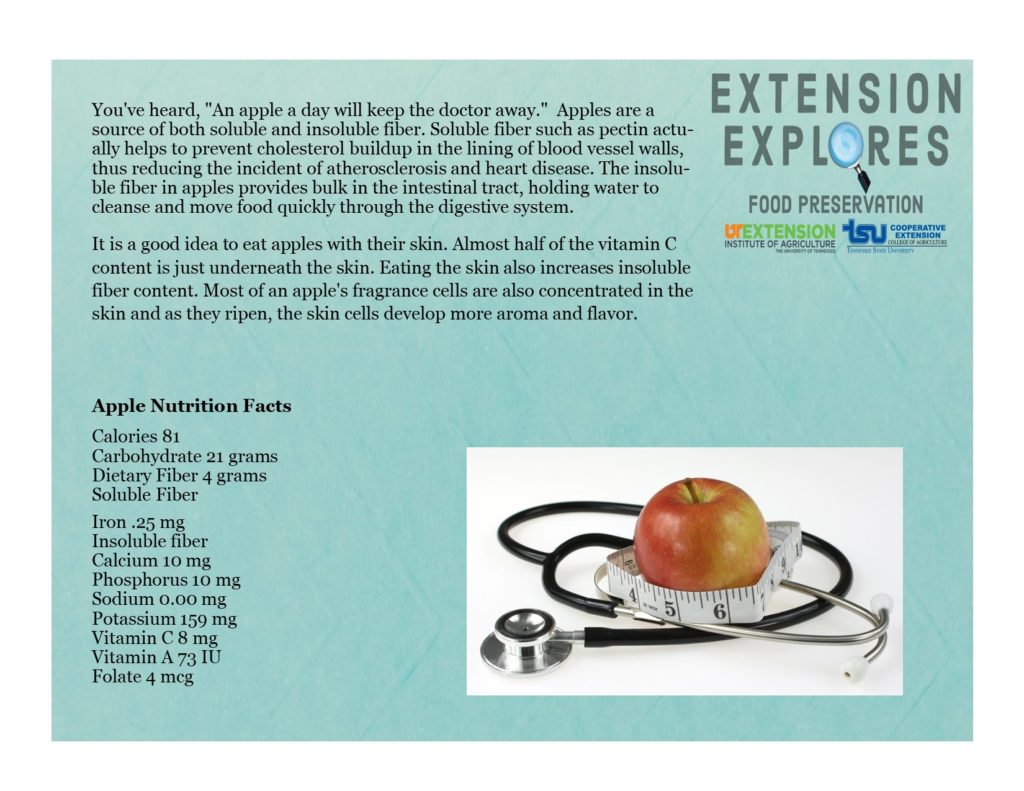
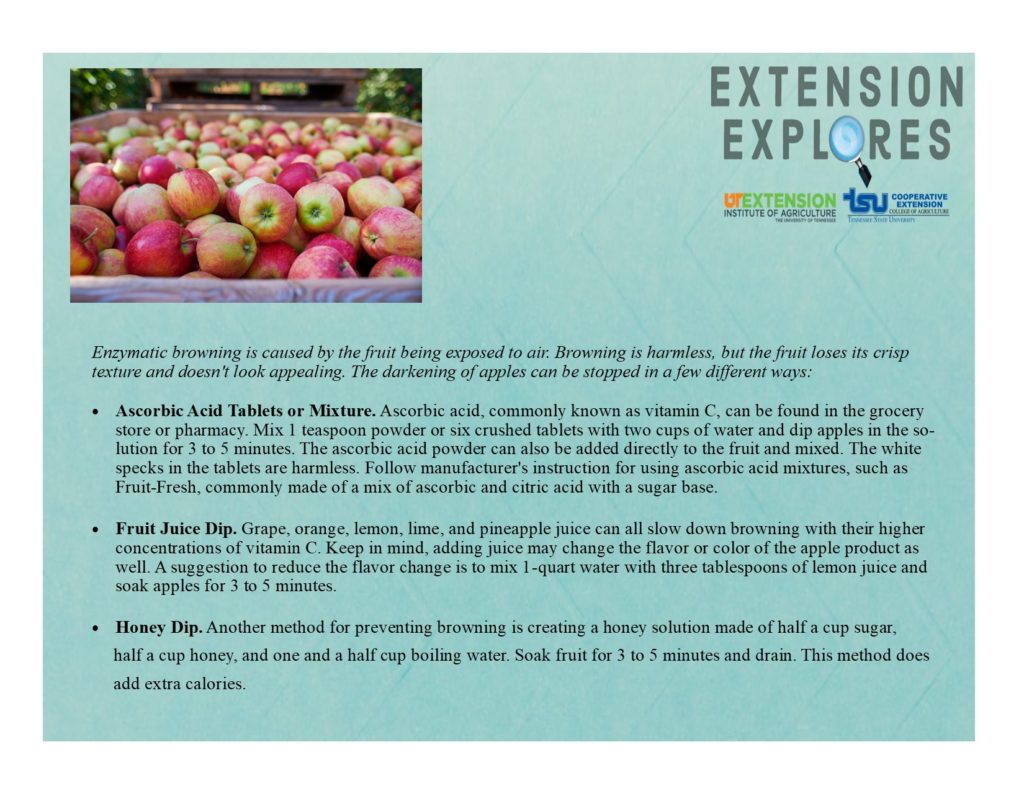
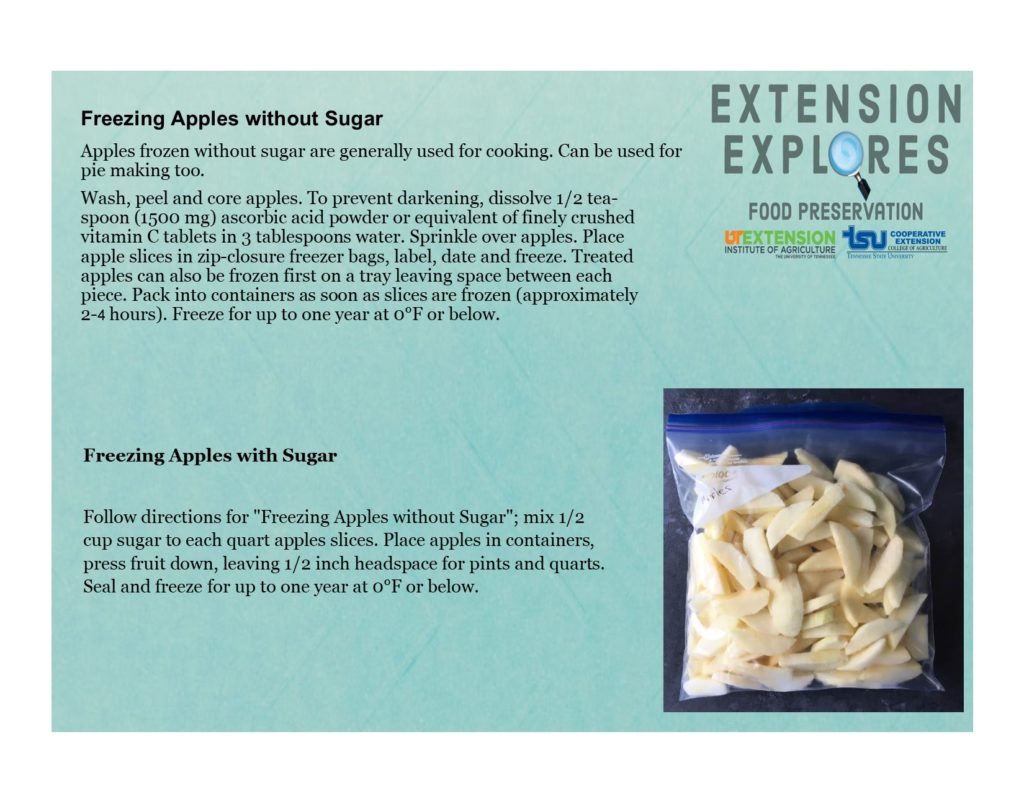
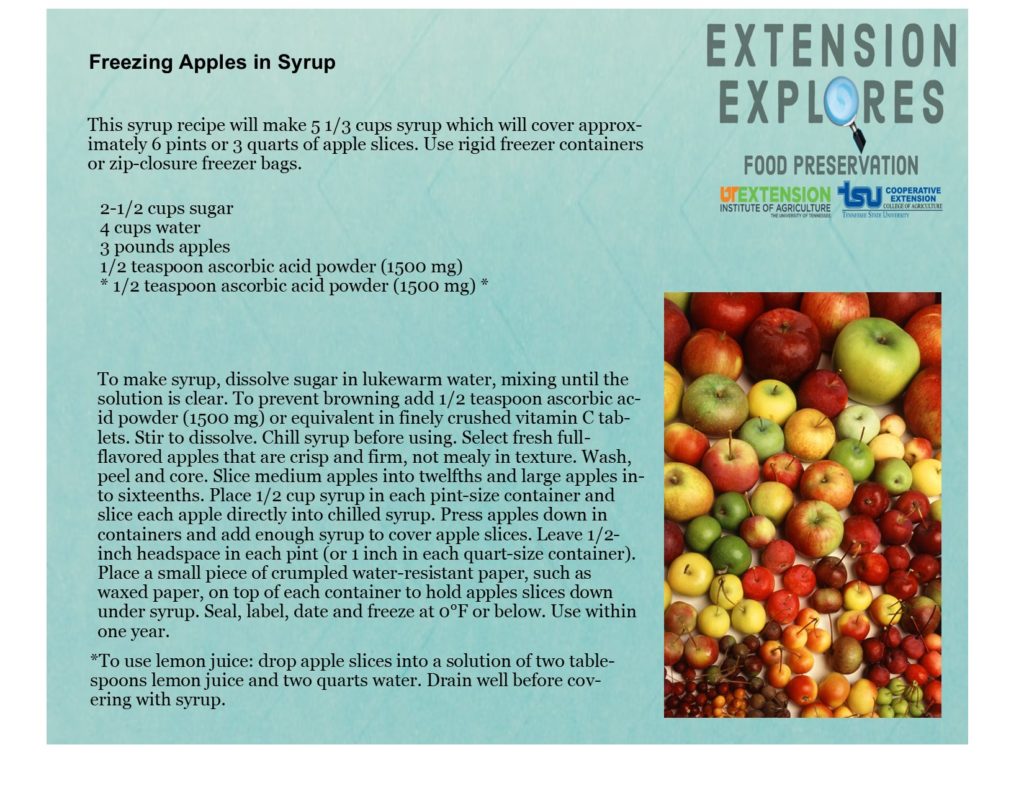
For more information or questions about food preservation, please contact the Family and Consumer Sciences Agent at your local county Extension office. Click here for a list of the Tennessee Extension Offices.
Trade and brand names are used only for information. The University of Tennessee Extension and Tennessee State University Extension do not guarantee nor warrant published standards on any product mentioned; neither does the use of a trade or brand name imply approval of any product to the exclusion of others which may also be suitable.